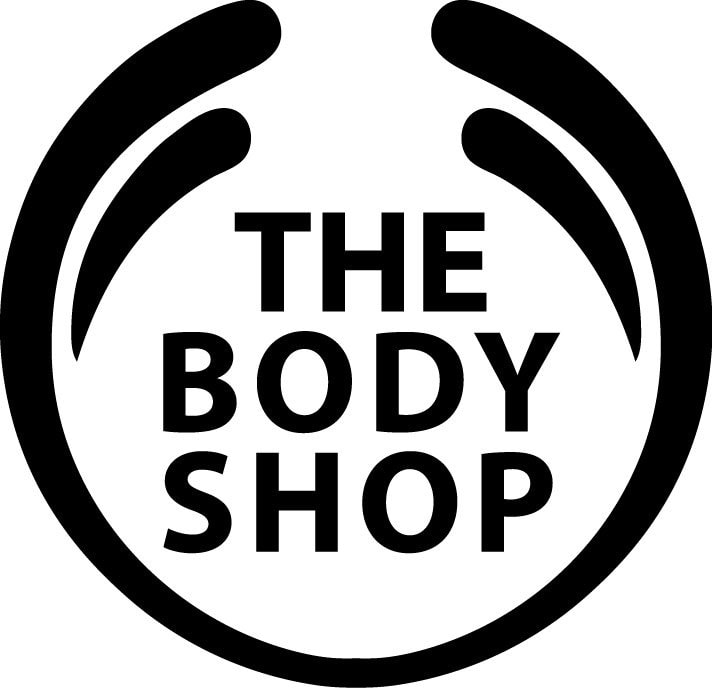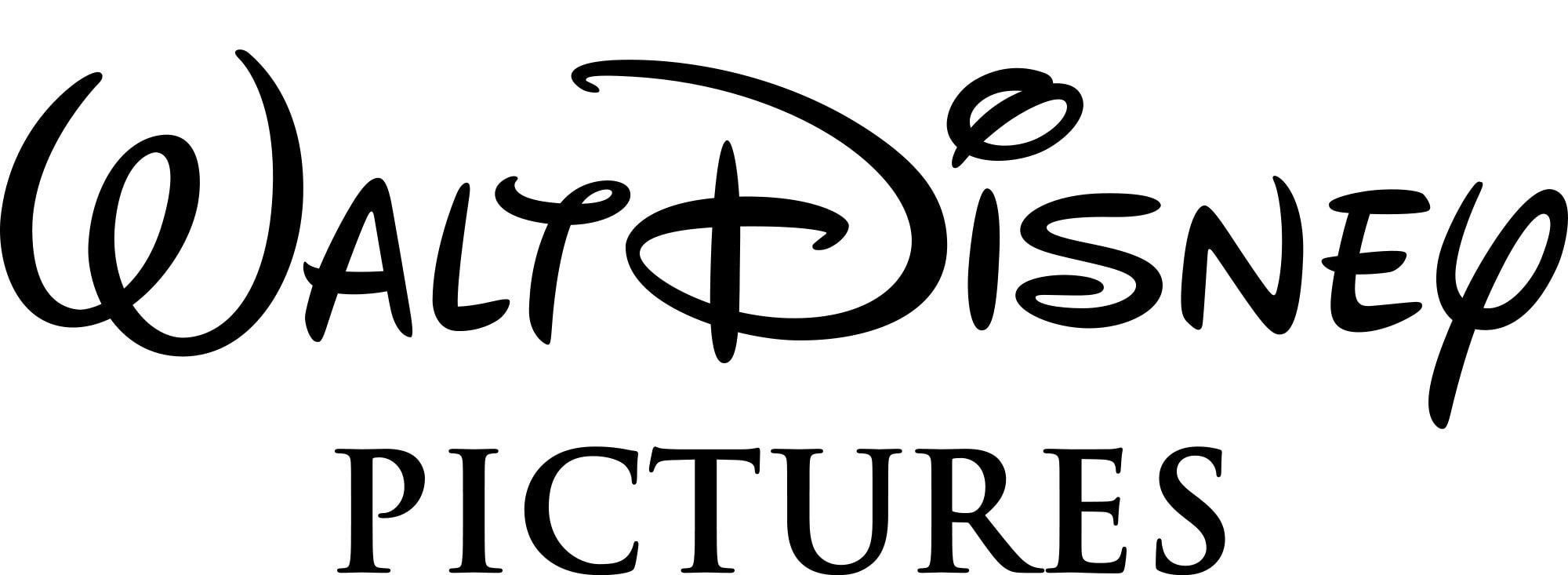
How to Come Up With a Business Name: Ecommerce Edition 2021
Even though it may seem like the simplest thing to do, deciding on a business name for your company or brand can be tricky. Some business owners are lucky enough to be absolutely certain about their choice, however, it is not uncommon to see others struggling with the task of coming up with a truly unique business name that encompasses their brand’s ethos.
One of the things to understand right off the bat is that while coming up with a business name is imperative and should not be a hasty decision, even a great name will do nothing for your business if there are major flaws with your product or service, your day-to-day operations or even your customer service. Know that a great business name won’t totally make-or-break your business, but it can make an impact so you want to make sure it’s a positive one.
A task like coming up with a name may initially seem trivial, perhaps even easy to someone starting a new business, but in actuality requires a little more time, focus, and effort. A great analogy for this is drawing the comparison between a business’ name and the cornerstone of a building. Everyone knows that the foundation determines how the rest of the building is built. The foundation begins with the laying of a cornerstone, following which the rest of the structure for the foundation is aligned. The smallest error in placing the cornerstone can reflect and amplify the misalignment of the rest of the building. It will always seem just a bit off and things just won’t stack up the way that they should. The same goes for your business name. Everything from getting the right—and hopefully, available—domain name for your business, finding investors that connect with your brand, creating marketing campaigns to help boost sales and even getting the right keywords for your SEO and advertising strategies—it can all be linked to having the right and powerful brand name.
The name of your business is one of the few constants that will get the most use and longevity than any other investment you make for your business. The trick is to get it right in the first go as a poor choice of business name could potentially limit or even negatively affect your business. Committing to a business name can be daunting, however, the right choice can be the key to your success.
This is a comprehensive guide that will take you through the steps of coming up with a great business name—it will explore the fundamentals of a powerful business name, the popular styles of names out there, the steps involved in coming up with a name for your own business, industry-specific advice and online tools to help generate the right business name for you, amongst other great tips.
Table of Contents
- What Makes a Great Business Name?
- Popular Styles of Business Names
- The Steps: Coming up with the Perfect Business Name
- The Budget for Your Business Name & Domain
- Crowdsourcing a Name for your Business
- How to Buy a Business Name
- Business Name & Domain Name Generators
- Industry Specific Advice for Business Names
- Conclusion
What Makes a Great Business Name?

Originality
A recent case of international trademark infringement involving a small-time South Korean fried chicken restaurant and the reputed fashion designer Louis Vuitton reflects why not being original can cost your business—big time. The restaurant was sued over the name “Louis Vuitton Dak” and the similarity of their logo with the fashion brands. Ultimately the court favored the designer Louis Vuitton and the restaurant faced an additional fine of 14.5 million US dollars for non-compliance when they subsequently changed the name to ‘Louisvui Tondak’, after the initial ruling.
Copying another brand is not only considered a cheap gimmick, but also unoriginal, which can negatively affect your business—even if the brand that you are trying to copy “or take inspiration from” is not from the same industry. If you aren’t dragged to court for copyright or trademark infringement, cashing in or piggybacking on another brand’s success can still potentially be disastrous if the other brand lands up in a PR nightmare.
Focus
Yes, you may be dreaming and plotting for world domination someday and thus naturally would be attracted to a business name with tags such as “global” or “enterprise” in it—and while it’s great to have big aspirations, don’t forget that your customers are looking for specialists in your niche and can be put off by such tags. As your company scales, you could always evolve the name, however, when it comes to ecommerce businesses that are highly focused on one area and have a name that suggests the same, they are most likely to be successful. So, maintain your focus on what you want your business’ name to reflect and let that be one of your main driving factors when making decisions.
No Limitations
On the flip side, while it may be ideal to narrow down your focus on one aspect when deciding your business name, avoid limiting your business by making it location-specific. Even if your business is exclusively serving a certain area and operates in a local market, including your city or town name in your business name may limit your future possibilities and may also hinder you from standing out in the swamp of similar “local” names. Although your plan may be to stay small and cater locally, it’s always a smart idea to pick a name that will allow your business to scale if you decide to do so later on down the line.
Appearance
How would the name look like as a logo, in an advertisement, or any other visual signifier? The “look” of the name can be almost just as, if not equally, important as the way it sounds.
Energy
For many ecommerce startups, this may be a very important aspect when considering a business name. The “vibe” or “buzz” that the name has will also affect its ability to raise and carry any advertisement and marketing campaigns in the future. The mark of a good business name will be to represent the business’ energy level authentically. While this may be subjective, of course, a great business name will be “full of life” yet grounded enough to exude professionalism.
Simplicity
As a business owner, you may come up with a name for your company that is edgy and cool and totally fits your brand’s personality, all while lending an air of sophistication. That sounds great until you realize that your customers aren’t able to spell or pronounce it due to how complex it is or the variations (eg: Site or sight? Fair or fare?). While your target audience may grow to learn the name eventually, the mark of a great business name is something simple yet memorable that your customers are able to catch on to right from the start. You could risk losing customers due to their inability to connect with your brand over something like a complicated business name so keeping it simple can go a long way to help you avoid such issues.
Availability
Perhaps the most obvious factor of coming up with a great business name is to make sure that it’s actually available to you and hasn’t already been taken by some other business, or is extremely similar to another business. There are several tools online that enable you to check the availability of your chosen name in your industry—we recommend using the Shopify Business Name Generator.
Popular Styles of Business Names
With the explosion of the world wide web in the 90s, we saw a boom in the number of start-ups popping up onto the scene, especially in the ecommerce segment. This prompted several styles of business names to evolve, some that were common and others that were never seen or heard of before. Here are some of those popular styles of business names that have come up over the years:
The Obvious One

A business name that gives clarity on the function of the company or the product/service it provides is an obvious choice. A few things to consider when going for this kind of a name is that, due to its obvious nature, there might be a high possibility that it has already been taken by another business. While this style of name may still be the go-to choice for a business person who wants to keep their business name simple and to the point, the name can appear to be boring and even common, since it might be a different variation of a name already in use.
Name-Based Business Names

Several companies are named after their founder/owner, muse, etc. This method of naming the business may help retain and reflect the roots and history of the company, as well as make it stand out if the name is unique or easily recognizable. Such a style is also used as a strong backing for the branding and PR side of things as it helps give the business a face to go with the name.
As with the “obvious name” style, two or more people can have the same name, leading to the same—or at the least similar—company names, too. Furthermore, pronunciation and spellings of a single name can vary which can also be tricky.
This style has obviously worked for popular brands we’re familiar with such as JP Morgan, Goldman Sachs, Walt Disney, etc., but if you are starting out small and are unsure of where your business may lead you, it might be wise to steer clear of a business name based on a person’s name—if you ever plan on selling your company in the future, there might be an issue when the ownership changes.
The Trendy One

This is definitely a very popular business name style amongst startups, especially in the tech arena. The nature of most start-ups is to be on the cutting edge and in-the-know of the latest trends and fads. There are two things to consider when using this style to name your company—firstly, trends are subjective (Who decides what’s trendy?) and secondly, trends themselves are volatile in nature (something that is “trendy” now can become passé tomorrow, dragging your company down too).
Acronyms and Abbreviations

Many companies prefer to use initials, acronyms, and abbreviations for longer phrases or names. While this may serve as a great mnemonic tool for the target audience to remember a longer descriptive phrase, business owners sometimes fail to realize that mnemonics may be shorter to write, but they aren’t always shorter or more efficient in terms of pronunciation, eg. “www” has nine syllables while “world wide web” has only three.
The Compounds

This style of naming involves putting two or more words together to make a name. In most cases, one of the words, usually the first in the order, is the lead and the focus is usually on it. The possible pairings could be noun-noun, noun-verb, adjective-verb, etc. This style is popular due to the high number of possibilities and combinations that can make interesting names. They are usually descriptive of the company or at least provide some context and, apart from being longer than other business name styles, there aren’t very many drawbacks to this style. Most well-known examples of such names are Facebook, YouTube, WordPress, and GoogleTalk.
The Blend

Similar to the Compound Style of business names we mentioned above, this model uses more than one word to come up with the name. The difference, however, is that this style involves often using only a part of each word—the recognizable bit—and sometimes overlapping them. Microsoft (microcomputer + software), Wikipedia (Wiki + Encyclopedia) and Skype (Sky + Peer-to-peer) are some famous examples of this style. The Blend Style works just as well as the Compound Style of business names but if not constructed carefully it can be awkward, unrecognizable, and meaningless.
Unrelated-Real Word Names

This category uses names and words that a majority of people are already familiar with and then tie them to their brand. Certain brands such as Amazon, Apple, Shell & Twitter are now household names and they have simply used familiar words and linked them to their businesses. These brand names are popular, easy to remember, and often replace the actual definition of the original word itself. People are more likely to associate Amazon with an online store and Twitter as a social media platform than their actual definitions—the name of a rainforest and a sound, respectively. The drawback of trying to pick such a name nowadays is that the domain name is most likely to be unavailable due to its familiarity.
Prefixed and Suffixed Names

A relatively simple and perhaps one of the most “done-to-death” naming styles: attaching a prefix/suffix to a word. Some of the most famous of these affixes are i- as in “iPod”, -ify as in “Shopify”, -ster as in “Appster”, -r as in Domainr and -ly as in Musical.ly. Research showed that the number of company names with the suffix -ify went from 5 in 2007 to over 300 by 2014, of which Spotify and Shopify were perhaps the most recognized and successful brands. Due to their simplicity and ease of use, too many companies with such affixes have cropped up, saturating the market with this style of business name. There might still be some unique names with a prefix and suffix, however, if not thought through well, they may seem a bit too abstract.
The Steps: Coming Up With the Perfect Business Name

Despite all the ambient knowledge and advice, the actual process of coming up with the name for a business is pretty straightforward. Here are the seven steps that take you closer to coming up with that perfect name for your business.
Step 1: Create Guidelines for this Process
While you might want to jump in and get right to it, first sit down and think about what you want to achieve through this process; it’s easy to lose focus and get off the right path without a few guidelines.
Start by creating guidelines for this process by noting down open-ended questions rather than hard and fast rules. For example, instead of making sure that the name is about something specific, try thinking along the lines of, “what do I want my company’s name to represent?”
These questions will help you stay on the right path by keeping true to your company’s ideals without restricting your creativity. A few other questions you could ask yourself are:
- What feeling/emotion do I want my business name to evoke in my target audience?
- What are my company’s priorities?
- Do I want my business name to be unique or something easy to remember?
- Will the length of the name really affect the company? If so, what works best?
Once you have the guidelines as a framework it will make the business name process more efficient.
Step 2: The Brainstorming Session
Get those creative juices flowing: Think about your company, the brand ethos you want to portray, the products and services that you will offer, the personality of your team, your competitors, and your idols. Don’t forget to also keep in mind the aforementioned guidelines you just created. Now make three distinctive lists:
- The first should be a list of keywords that resonate with your brand, team, personality, product, and services. This should include technical terms, phrases, words that strike a chord with you, or possibly with your audience. Learn more about keywords in our Ultimate Guide to Keyword Research article.
- The second should be a list of names of your competitors and/or your idols. Take these names apart, put them back together, and try to figure out how and why the names work or don’t work. Make notes alongside so that you can apply the same fundamentals to your own business name.
- The third should be a list of names that you probably thought of or created while making the previous two lists. Try to keep your unique selling proposition in mind and figure out a way to convert these into keywords.
You will most likely end up making these lists simultaneously due to their co-dependent nature. Some people find it easier to work with mind maps, spider diagrams, or even doodling—find the method that works for you and use it to brainstorm your ideas.
Step 3: Take a Break
This step might seem counterproductive to many people, however, it is essential to take a break from the process to avoid getting boxed into any one particular mindset. If you can’t keep an open mind during this step, it may result in you not being able to see a major flaw or issue with the name. On the other hand, tunnel vision may also result in you losing out on other great ideas for a potential name. So go take a walk, hit the gym, watch a movie—you never know where or how inspiration might strike you.
Step 4: Come back to the List
Were there any particular names that stuck to you at first or even when you walked away from your list? Further refine and organize this list by crossing out names that aren’t working for you, sorting the similar ones out, and highlighting the ones that did stick.
When you have narrowed down your choices and are left with only a handful of names, sleep on them and review the list with a fresh perspective. In most cases you should be able to point out the right option for you, however, if it still seems a bit off, go through the brainstorming session again, maybe even with a trusted friend or colleague.
Step 5: Check the Availability of your Chosen Business Name
A lot of people do this after they’ve finalized their business name but don’t wait until you find the “perfect” name before you check for availability, check earlier on in the process so you know whether you need to head back to the drawing board or not—and sooner rather than later.
There are three ways that you can check for availability—the simplest way is to run the name through a search engine such as Google and check for search results and sponsored ads by companies with a similar name.
Another way to check if the name is available is by cross-checking it with the patent and trademark database that is relevant to your location. The United States has a Trademark Electronic Search System (Tess), that lets you check for business name availability.
Once you know that your chosen business name is not a Google search result and isn’t already a registered company or a trademark/patented name, the next step is to run a domain search. As an ecommerce business, having the right domain name to promote your brand and products is absolutely crucial.
In case of unavailability, an alternate option is to use mnemonic devices such as abbreviations and initials or an alternate top-level domain (for example, yoursite.net or yoursite.co.uk instead of yoursite.com), however, there is still a strong preference for .com domains. Moving away from the commonly used top-level domain .com, can sometimes make it harder to remember the website URL. Alternatively, this can also mean that two or more extremely similar domains can exist, which can be harmful to the brand—eg. xyz.com or xyz.biz or xyz.net—be sure to keep an eye out for different variations of your own domain name.
If none of these options work out, it may be advisable to look at the other names on your list. But before you abandon your favorite business name just because the domain name isn’t available, it may be advisable to check out multiple domain portfolios as they may have abstractions or variations of your chosen name that you probably hadn’t thought of before.
Note: KnowEm is a great tool to run an availability check through because it’s a social media brand search engine, a trademark protection service, a brand marketing platform and a social network all rolled into one! They offer a lot of different services, ranging from free username searches, domain searches, and trademark searches. KnowEm allows you to check for the use of your brand, product, and username instantly on over 500 social media websites.
Another platform that can be used to check the availability of your username for your business across dozens of the most popular social network websites, is NameChk.
Step 6: Test The Name and Get Feedback
This step is perhaps the best way to gauge how your chosen business name will do.
- Pick a sample group of a minimum of 20 people (preferably the closest resemblance to your actual target customers).
- Split the group into two and ask one half to spell your business name after you tell it to them and the other half to pronounce it after showing them your business name in writing.
This is an important exercise to see how your customers may engage with your brand’s name in conversation or otherwise. According to Yourdictionary.com, “experience, intelligence, jewelry, millennium, and personnel” are few of the top 100 most misspelled words. These frequent errors in such commonly used words suggest that any business name that might be slightly trickier to spell can cost your company web searches, organic searches, verbal referrals, and thus both traffic and revenue. You want your business name to be customer-friendly, not customer-confusing.
A surefire way of testing out the better name between two or more solid options is A/B Testing. Create landing pages that are identical in nature but have your different business name options on them and run targeted traffic to these landing pages using Facebook or Google Ads. While this step requires a small monetary investment (between $50-$100), it will provide you with the most accurate and unbiased opinion on which name will work the best for your business.
Step 7: Register your Business Domain Name
Once you have done the necessary testing for your chosen business name, you need to commit to locking it down and register the domain name for it. The problem with domain names is that they can be picked up by anyone around the world at any given time thus they need to be secured at the earliest possible moment.
Even if you’re not 100% sure that it is THE domain name for your company, register it. In fact, it may even be smart to purchase a couple of domain names (if they are affordable and fit in your budget) while you’re at it as this gives you lots of options. If you end up purchasing more domains than you actually need, you can either sell them later or keep them for alternate linked landing pages for specific offers, products, etc.
Most domain registrars will also provide the option of registering multiple top-level domains with the one that you have chosen. This is a great way of leaving options open for your brand while securing the domain name, too.
In case the domain name that you want is already owned by someone else, you can you this practical guide to getting around this issue: Buy a domain name that someone else owns by Domainr.
These steps should help you find and secure the best possible name for your business!
Note: IGOR provides a great insight into the psychology of naming your business, here is an excerpt from their naming guide:
“You could also conduct a competitive analysis before you start the naming process for your company. This would involve asking a few questions about your competitors, such as:
- How are your competitors positioning themselves?
- What types of names are common among them?
- Are their names projecting a similar attitude?
- Do their similarities offer you a huge opportunity to stand out from the crowd?
- How does your business or product differ from the competition?
- How can a name help you define or redefine your brand?
- Can you change and own the conversation in your industry? Should you?
A competitive analysis is an essential early step in any naming process. Quantifying the tone and strength of competitive company names or product names is an empowering foundation for any naming project. Creating such a document helps your naming team decide where they need to go with the positioning, branding, and naming of your company or product. It also keeps the naming process focused on creating a name that is a powerful marketing asset, one that works overtime for your brand and against your competitors.”
Tip: Several countries around the world also have guidelines that must be adhered to when naming a business. If you plan to scale your company or establish a company overseas it is important to inform yourself of these guidelines and rules to avoid any legal hassles that may arise.
For example, the UAE naming regulations checklist is as follows:
- Offensive language is forbidden. Phonetic considerations must be taken into account to ensure all words are non-offensive when pronounced in Arabic.
- Company names cannot contain references to Allah or anything relating to Him.
- Only full personal names can be included in your company name– meaning both first name and last name are required if you are using your personal name for your company name.
- If you do choose to name your company after a person, they must be either a partner or owner of the company as named on the company license.
- Company names should include no references to political organizations or religious or sectarian groups, such as the FBI or Mafia.
- All company names must be written as they are sounded out rather than translated.
The Budget for Your Business Name & Domain

Depending on your choice of name, the price of your domain can range from $20 to a few thousand dollars. If your budget allows, it would be wise to keep aside a little more than the sum of money that you actually intend to spend on the domain. This gives you the leeway to purchase an expensive yet more favorable domain name if necessary.
Another thing that you should closely look at while deciding a budget for picking the right business name is whether you are a B2C or B2B company. In the case of most B2C companies, customer acquisition depends largely on the success of the marketing and advertising endeavors. As mentioned earlier, such strategies are carried out by a company name that can be communicated with ease. On the other hand, B2B companies rely on connections and partnerships by focusing on the services, the company’s abilities, and their pricing strategy. This takes the heat off the company name, even if just by a little. It would be wise to ascertain how important the name equity is for customer acquisition and executing marketing operations, if any.
For certain companies, such as data security companies, customer perception is everything. In such cases, you might be required to pay a higher amount for the domain name of your choice to establish yourself as a legitimate entity within your industry. For a data security company, creating the persona of reliability and trustworthiness could cost up to a few thousand dollars but it is important to understand that the right business name coupled with the right domain name could drive more revenue towards the company thus this would be an appropriate investment.
Your budget should also allow you to be able to use other tools such as availability checkers, keyword generators, a/b testing, etc. if required.
Crowdsourcing a Name for Your Business

Many business owners do not have the time or the mental bandwidth to put into the naming process. In such cases, crowdsourcing a name for the business can be a great idea. There are several companies that make this process easy, fast, and efficient. Crowdspring is one such example—it is a platform that connects thousands of creative professionals to businesses online who provide solutions to their business needs.
Here are some popular categories:
- Logo & Identity
- Web & Mobile Design
- Business & Advertising
- Naming and Branding
- Product and Packaging
- Art and Illustrations
- Clothing and Merchandise
- Book & Magazine covers
Crowdspring offers various packages with upfront pricing options to suit your budget and business needs. They have a community of over 200,000 creatives on standby that will come up with business names and tweak them with your feedback, within the stipulated amount of time, which is approximately seven days on average.
The company prides itself on the variety that they can provide to their paying customers—they guarantee to refund your money if you do not receive at least 100 names per project. Furthermore, they also protect your intellectual property using legal contracts that are included within the pricing package.
The nature of crowdsourcing allows an approach to the naming process that’s radically different. You often have a lot of variety from all over the world and several great options to choose from. On most websites you can even organize and sort the entries using a rating system—this may make the entire process of naming your business more efficient. However, like with everything else, crowdsourcing a business name for your company does have its drawbacks, too. For someone who turned to crowdsourcing as a way of cutting down on the time and effort it takes to name their business, they may get overwhelmed and find the process counterproductive when they receive and have to sort through hundreds of names.
How to Buy a Business Name
If crowdsourcing isn’t your preferred way to find and select a business name then buying a business name can also be a viable option. BrandBucket is the largest online marketplace for brandable business names and it also provides branding solutions such as logos for your company, too. According to their website, their mission is “to make naming a business, simple, quick, secure and painless” wherein they provide unique and brandable business names along with a premium domain name for any and all kinds of business ventures.
When they say that the domain names on their website are “brandable” they mean that the names do not hold any prior connotations and are non-keyword names that have no specific meaning. Such names have the ability to portray the brand’s personality without having a direct connection with the business or the products and services they provide.
Due to their nature, brandable names are not restricted to keywords and can be expanded upon while becoming stronger and more recognizable. As an example of this strategy, BrandBucket suggested taking a look at the business name “Google”:
If Google had launched as “SearchEngine.com”, their brand wouldn’t have become a verb, and they wouldn’t have been able to develop the many different products they are now famous for.
According to their website, this is how the process works:
“BrandBucket is a marketplace of domain names that are owned by several different people. To facilitate the transfer of domain ownership, we provide an escrow service between the domain owner (the seller) and you, the buyer. We hold your payment as a third party, and guarantee the transfer of the domain into your account at the registrar of your choice before we release the payment to the seller.
We take care of the whole process and handhold you through it. We also guarantee the transfer of the domain to you, or your money back.”
Business Name & Domain Name Generators
Shopify Business Name Generator
The Shopify Business Name Generator is perhaps one of the best tools out there. Shopify only lists business names that have domains available, all you have to do is plug in your company’s core concept into the generator and the tool does the rest. Additionally, they also have business name generators for niche markets and targeted industries which include:
- Clothing Line Name Generator
- Jewelry Store Name Generator
- Craft Store Business Name Generator
- Boutique Name Generator
- Fashion Brand Business Name Generator
- Baby Store Name Generator
- Flower Shop Name Generator
- Furniture Store Name Generator
One of the advantages of using the Shopify Business Name Generator is that if you find the perfect name for your company you can easily sign up for a Shopify account, launch your own store and start selling your products right away. Don’t forget to check out our Shopify Review if you’re new to Shopify and want to learn more about the features and services they offer.
Name Mesh
If you are looking for a company name generator that will provide you with available names and domain names that include specific keywords, then Name Mesh is the right tool to use. Not only will this tool provide you with the list of available domain names with the exact keywords that you searched, but it will also provide you with a list of available domain names with relevant keywords. When you run a search, the website will further categorize the page into sections such as similar, new, fun, common, etc. in order to find just the right domain name for you.
Hipster Business Name
As the name suggests, Hipster Business Name generator helps the user find the perfect “hipster” business name. Being on the quirkier side, some of the names that are generated are funny, clever, catchy, and downright creative, which makes it the best option if you are looking for a really unique name. The generator provides brandable domain names, which means that you are not restricted to a niche and can expand based on your branding.
Wordoid
Wordoid is another name generator that helps find names based on keywords. Just plug your keyword in and click on ‘Create Wordoids’ and the generator will find any available business name. Once you click on one of the wordoids, the link will take you to the GoDaddy website to purchase the domain. This generator also uses an affiliate link to earn a commission.
Naminum
Naminum is a great tool if you are looking for single word domains as it uses suffixes and adds those to your desired keyword. It takes a little clicking around before you find the domain names that are available, which seems to be the only disadvantage to this particular generator.
Lean Domain Search
True to its name, the Lean Domain Search generator simplifies the process of finding the perfect brand name. Your entered keyword will direct you to a separate page where any available domains will be displayed. All available domains will be listed at the top and in green. Furthermore, if you choose a particular domain name, the generator can also check if the social media handles for that name are available to you.
IWantMyName
IWantMyName is noteworthy because it includes many of the new domain name extensions in their search like .boutique and .blackfriday which is unique and caters to the niche markets, adding value from a branding perspective.
NameJet
NameJet is an aftermarket domain name generator service with an exclusive inventory of some of the most desired expired domains. They use domain name aftermarket technology that allows domain professionals, businesses, and individuals to acquire domain names including those that just expired.
DomainsBot
DomainsBot is a domain name search engine that will not only give available domain suggestions but also search expired, expiring, and for sale domain names. They also have the best performing name suggestion tool on the market that provides relevant results in 11 languages across all available top-level domains.
Naming Matters
Naming Matters takes into account the different aspects of what your business/company does, potential trademark issues that may eventually arise, domain availability, and more. Depending on the features you want to use, you might have to pay for them as they work on a freemium/SAAS model.
Domainr
Fast, free, domain name search, short URLs—Domainr helps you find the perfect name for your company or project by exploring the entire domain name space beyond the ubiquitous and crowded .com, .net, and .org. Perfect when looking to match a unique business name with a different kind of top-level domain.
Impossibility
Impossibility calls themselves “the best domain name generator ever.” They combine a keyword (provided by you) with a list of carefully selected nouns, verbs, and adjectives. Then they search for unregistered .com domain names and show you the results to choose from. Impossibility is affiliated with GoDaddy.com
Bust-A-Name
Bust-a-Name is a tool to help find domains and manage them. The name generator website claims to combine linguistic data with a unique interface to let users quickly search through thousands of domains and see which are available to them. There are several options within their website, wherein the user can also specifically look for brandable domains.
Launchaco
Launchaco is extremely streamlined and all their functions and tools exist on a single page. You enter your business name idea and the options for different kinds of domain names ranging from startup, business, fun, and tech, all the way through to education, amongst other categories, will appear. You can also see if the social media handles are available and the logo font typography options.
Industry Specific Advice for Business Names
The one common thread that runs through all industries when it comes to branding and coming up with the perfect business name is that the connotations that form a strong first impression are really important. If the name of your brand evokes a certain image in your audience’s mind and that image happens to align with your brand ethos, your marketing efforts will succeed at a greater scale than if there were no connection.
The Haagen-Dazs Ice Cream brand is one such example wherein an absurd linguistic marketing attempt actually worked. A gourmet ice cream company that started in the Bronx area of New York needed a lot more marketing to convince customers that their brand was a luxury one so they gave the company a faux-European name (one that doesn’t mean anything in any language of the world) and the rest is history.
Another example of building a brand identity around a business name is from the company Tesla. The company was named after Nikola Tesla who was a brilliant scientist and inventor from the 19th century and had the reputation of challenging the status quo and the conventional mindsets, even if it meant challenging other well-renowned scientists and big-wigs such as Thomas Edison. Drawing this comparison between the company led by Elon Musk and its namesake places the brand as one that challenges conventional wisdom and leads with breakthroughs.
These two examples show the thought process that goes behind naming companies and how the connotations they hold are symbolic of their respective products and brand ethos. Of course, the fact that the brands truly live up to their names by providing high-quality products only empowers them more.
Here are a few tips when it comes to naming businesses in the following industries:
Lifestyle
Consumers who are looking to spend on lifestyle products are essentially paying for a certain image in society. This means that they would like to be associated with brands that are exciting thus if your company “sounds” boring, it may affect your customer conversion rates. While this factor is true for most industries, it especially resonates with the lifestyle industry.
Pick a name that reflects your individuality and uniqueness. Draw inspiration from your driving factors that motivated you to pursue entrepreneurship in the lifestyle segment specifically. This could translate well into a business name.
Tech
When it comes to tech companies, there are limitless possibilities due to the extended vocabulary that is native to the industry (Giga, byte, flash, pro, etc). Such advantages actually provide a solid backing for business names.
The thing about tech companies is that it is actually beneficial to name the brand something that sounds as successful as you would like your company to be. This from a sales viewpoint is great as it establishes credibility and gives you an air of professionalism.
The kind of tech that you are involved with can also determine the name of your business. Incorporate your business type into your brand; are you an app developer? Or do you deal with hardware components in a specialized niche, such as drones? Or do you provide a broad spectrum of products and services?
Due to the number of tech startups and even established companies in the industry, choosing a name that is memorable is absolutely crucial. It should be a name that immediately can be linked to your company and should ring a bell when it is mentioned.
While all industries should consider the importance of their business name and logo being synonymous, it stands true even more so in the tech industry due to the need for representation through apps, software platforms, etc. In short, your company’s name should be logo-friendly so bear that in mind.
Travel
The thing about the travel industry is that it is a segmented industry which has several niche markets and target audiences. Think about the kind of travel market you want to cater to—do you specialize in gap year travel, corporate retreats, family vacation planning, adventure trips, sustainable travel? The options are endless!
This is why it is a smart idea to incorporate your niche within the name and/or slogan of your business so that the customer has some sort of context before they engage with your company—this can help prevent misunderstandings on both sides.
Factors to keep in mind while looking for the right name for a travel company are a certain level of professionalism and reliability. If you were to trust your safety and any traveling needs to a company, wouldn’t you look for a company that seems professional and reliable? Travelling is supposed to be fun but it also often involves divulging your personal details to absolute strangers, pressing time constraints and important documentation to be handled—which means a professional sounding name would be more likely to succeed.
If your company deals with relaxing vacations and bespoke holidays, it might be wise to have a name that “sounds relaxing”—perhaps something along the lines of “paradise,” “leisure,” or “oasis.”
Finance and Business
Finance and business-related companies rely heavily on security and credibility when it comes to business names. Unfortunately, due to the potentially dry nature of the company, you may end up choosing a name that reads like it’s out of the 90’s business listings or phonebook directory. Alternatively, if you try too hard by using a “web 2.0” name, you could end up with a business name that’s slightly inappropriate for the industry in terms of professionalism.
Here are a few tips to keep in mind while brainstorming a name that exudes the feelings of credibility and security you need to represent:
- In the case of a company dealing with finance and/or business, a good route is to take the “Perennial or Evergreen” one. The strategy for creating such a company name is to merge words that have pre-existing positive equity to come up with something fresh yet grounded.
- Another option is to use an invented or coined brand name. These would be the brandable kind that have no existing meaning thus can be easily positioned according to your will, with the right kind of branding. Think about names that multiple marketing strategies can be designed around and built from scratch.
- Lastly, a descriptive hybrid-type name could also work in the case of financial companies. A great example is of the online trading platform called TradingBlock (“Trading” represents the industry niche and “Block” represents reliability and strength) which is a brandable name around which elaborate marketing strategies can be created.
Conclusion
On the most basic psychological level, humans name things to understand the arcane meaning of words, to know the origin of an entity, to gauge the emotions that a certain sound produced in others, and the visual expression of a name. Thus, keeping these things in mind, it’s easy to understand how a great name can do more than just convey what the entity is—it can represent character and personality. This is a key factor to consider when determining a business name as a great one can help establish the foundations of strong customer relationships, whether or not customers can connect to your brand and your leadership within an industry.
Every business owner and entrepreneur will have a different process and journey when it comes to choosing their business name; some entrepreneurs will test and test and test until they have exhausted all options, while others will move quickly and go by their instincts and their gut. While you may be in a hurry to make a decision, do not rush the process—bear in mind that professional firms that deal with branding and naming usually take between 6 weeks to 6 months to come up with a viable business name option. While you may not have the same luxury, take your time on the process.
While it is important to understand that a brand starts with a good name, you can’t forget that the brand itself is a result of communicating your company’s voice and priorities to your customers through your business as a whole. A powerful name will just give you that distinctive edge and help you make a truly engaging first impression, so choose wisely.
To sum it all up:
How to Come Up With a Business Name
- Pick a style of business name
- Create guidelines for your business name
- Brainstorm possible business names & use an online business name generator
- Take a break & think about the potential business names
- Revisit your list of names & see which ones stand out to you the most
- Check availability for the business name online, for domains & social media, etc.
- Test the name & get feedback from others
- Define your budget for purchasing a business name domain
- Register your business name domain
- Turn your business name into a logo and other branding assets for your business!



